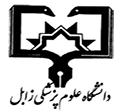(2019) Health literacy among Iranian adults: findings from a nationwide population-based survey in 2015. Eastern Mediterranean Health Journal. pp. 828-836. ISSN 1020-3397
Full text not available from this repository.
Abstract
Background: Health literacy is one of the most important determinants of noncommunicable diseases prevention. Health literacy is associated with elevated risks for poorer access to care, adverse health outcomes, and increased hospitalization and health costs. Aims: This study aimed to determine the level of health literacy among the general adult population in the Islamic Republic of Iran. Methods: Using a cross-sectional study during 2014-2015 with a multistage cluster sampling approach, we administered a pilot-tested standardized questionnaire to assess different domains of health literacy (i.e., reading, comprehension, communication/decision-making and Interpretation/judgment skills, individual and social empowerment, health information access and health information use) among 8439 (3935 males) individuals aged 18-6o years. Data were collected through face-to-face interviews. Descriptive statistics and multivariable linear regression method using SPSS (20) were applied to identify the factors associated with health literacy among Iranian adults. Results: The mean health literacy level was 10.2 +/- 3.8 (out of 20). Only 18 (95 confidence interval CI: 17.15-18.78) of the participants had adequate health literacy, while 45.7% (95% CI: 44.64-46.78) had inadequate, and the 36.3% (95% CI: 35.21-37.33) had moderate health literacy. In the adjusted linear regression model, education level (the smallest beta = 4.35, P < 0.001), age (beta = 0.01, P = 0.002), female sex (beta = 0.45, P < 0.001), residency in rural areas (beta = 0.26, P < 0.001) and having permanent job (beta = 1.03, P < 0.001) were significantly associated with more health literacy. Conclusion: Our findings highlighted that the Iranian adult population has an insufficient level of health literacy, which calls for comprehensive education planning to improve the levels, with special attention to certain subpopulations (e.g. illiterate populations) and domains (e.g. individual empowerment).
| Item Type: | Article |
|---|---|
| Keywords: | health literacy Iranian adult population questionnaire empowerment health information prevalence behavior skills Health Care Sciences & Services Public, Environmental & Occupational Health |
| Divisions: | |
| Page Range: | pp. 828-836 |
| Journal or Publication Title: | Eastern Mediterranean Health Journal |
| Volume: | 25 |
| Number: | 11 |
| Identification Number: | 10.26719/emhj.19.017 |
| ISSN: | 1020-3397 |
| Depositing User: | مهندس مهدی شریفی |
| URI: | http://eprints.zbmu.ac.ir/id/eprint/3584 |
Actions (login required)
 |
View Item |



